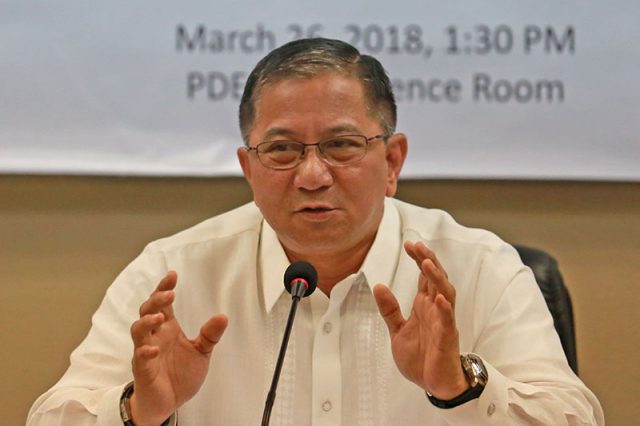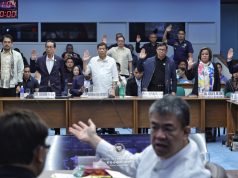
The Philippine Drug Enforcement Agency‘s proposed mandatory drug testing for students starting from grade 4 was questioned if the budget can shoulder the additional cost of over P2.8 billion for the more than 14 million students nationwide.
Under PDEA’s proposal, school drug tests will be mandatory for students, teachers, and school personnel in grades 4 to 12, secondary, and tertiary levels as part of the government’s campaign against illegal drugs.
Several people questioned where the government would get the money for it.
“Aside from the obvious legal and moral questions, people should ask: What will be the expense for this project? Where will they get the funds for it? Will there be bidding for it, or will be direct contracting/negotiated bid?” lawyer Gregorio Larrazabal said on Twitter.
Others say how the funds for it could have been allotted to improve the quality of education of the students instead.
Kesa gastusin yung pondo pambili ng drug testing kits para sa mga grade 4 students pataas, bumili na lang ng mga libro, notebook, silya, pagawa ng classroom at itaas ang sweldo ng mga guro. Maayos na edukasyon ang kailangan ng mga kabataan para mailayo sa bisyo, hindi drug test.
— Justine Dizon (@justinedizon) June 21, 2018
The Department of Education earlier warned the anti-drug agency that the testing fee per student is P200, which would already amount to P2.8 billion, and there are at least 14 million students from grade 4 to 12 public schools today.
As PDEA did not provide any estimation, members of the Alliance of Concerned Teachers (ACT) computed that such plan would probably cost the government P4 billion.
The amount would have been better used to fund the P10,000 salary hike of entry-level public school teachers, ACT Secretary-General Raymond Basilio pointed out.
Safety of the children
Some people, mainly parents, are concerned that making grade 4 students, who are mostly 10-year-olds, comply with a drug test may be a form of abuse.
Twitter user Jovan described how the experience of undergoing a drug test would look like in their future.
“Just imagine what would they tell their kids in the future. ‘Nung grade 4 kami nagpadrug test kami. Guess what, positive yung kaklase namin,” Jovan shared.
PDEA Director General Aaron Aquino explained that the agency had found drug offenders as young as 10 years old in their operations.
“We do not do this to harass children and their parents, we want to save their children,” Aquino said.
Following the many deaths of minors in the drug war, which the government merely passed as “collateral damage,” Human Rights Watch is not convinced that the children’s safety will be a priority if ever PDEA’s new program will push through.
Need amendment of existing laws
DepEd cited the Comprehensive Dangerous Drug Act of 2002, which Congress will need to amend first before PDEA can carry out its planned drug testing for grade 4 students and above.
In Section 36 of Republic Act 9165, students of secondary or tertiary levels, both private and public, are only required to undergo random drug tests, which budget is provided by the government.
On its part, PDEA sought to have a resolution from the Dangerous Drugs Board to enforce the mandatory testing under the act, but may change their plan to start it for grade 6 students and above.









